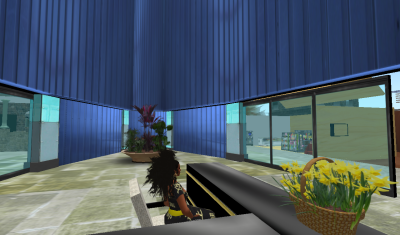Last-minute, mobile-app-driven hotel booking is a trend on the rise. Market research firm PhoCusWright projects that by 2014, 20 percent of hotel bookings will be made by tablet and mobile phones. Currently, the flash travel app a hot market, and 2013 has been their year. Pioneering U.S. brands like Hotel Tonight offer last-minute deals on hotel rooms that have attracted millions of mobile users, and nearly $50 million in venture capital. The popularity of Flash Travel results from its simplicity. The typical flash travel business model is a free mobile app. Once credit card information is entered, (sometimes by snapshot, to avoid the annoyance of typing numbers) users select their city and are presented with three to five vetted hotels. A few taps, and they’re booked. Whether reservations are made on the morning of the flight, or in the cab at midnight, flash travelers are relieved of the burden of searching and the pain of planning, and get a chance to embrace the fun of spontaneous travel. Services often feed information based off the user’s GPS location, showing the closest hotels. Most of them accept reservations made within minutes of check-in, and all of them offer some pretty serious discounts on hotel rooms. Great for the users, but this last aspect has some in the hotel industry intoning notes of impending gloom.
Last-minute, mobile-app-driven hotel booking is a rising trend, reforming the landscape of the hospitality industry. Leaving laptops behind, forgoing search and compare on their home computers, more travelers are just going mobile (phone). Market research firm PhoCusWright projects that by 2014, 20 percent of hotel bookings will be made by tablet and mobile phones. Projections like this make the flash travel app a hot market, and 2013 has been their year. Pioneering U.S. brands like Hotel Tonight offer last-minute deals on hotel rooms that have attracted millions of mobile users, and nearly $50 million in venture capital. In Europe, flash travel app providers like Hot Hotels and Blink are fighting to capitalize on the lure of last-minute travel in the attraction-dense landscape of the Continent. Just around the globe, Hotel Quickly, flush with Hong Kong venture capital, is staking out South East Asia, perhaps the most mobile-friendly, smart-phone-drenched market in the world. Clearly, as the world changes, the way we travel through it is also transforming.
The popularity of Flash Travel stems from its simplicity. The typical flash travel business model is a free mobile app. Once credit card information is entered, (sometimes by snapshot, to avoid the annoyance of typing numbers) users select their city and are presented with three to five vetted hotels. A few taps, and they’re booked. Whether reservations are made on the morning of the flight, or in the cab at midnight, flash travelers are relieved of the burden of searching and the pain of planning, and get a chance to embrace the fun of spontaneous travel. The Services often feed information based off the user’s GPS location, showing the closest hotels. Most of them accept reservations made within minutes of check-in, and all of them offer some pretty serious discounts on hotel rooms. Great for the users, but this last aspect has some in the hotel industry intoning notes of impending gloom.
The American Hotel & Lodging Association and Smith Travel Research report that, by 2015 the hotel industry will pay $7.5 billion in commissions annually to businesses that help sell hotel rooms, up from $3.8 billion in 2010. With an increasingly mobile-driven populace travelling through the madness of an ever more complex world, large parts of that profit will be made through last-minute hotel providers. Whether Flash Travel will be a blessing or a curse to the industry is impossible to predict. Travel is a complicated business.

